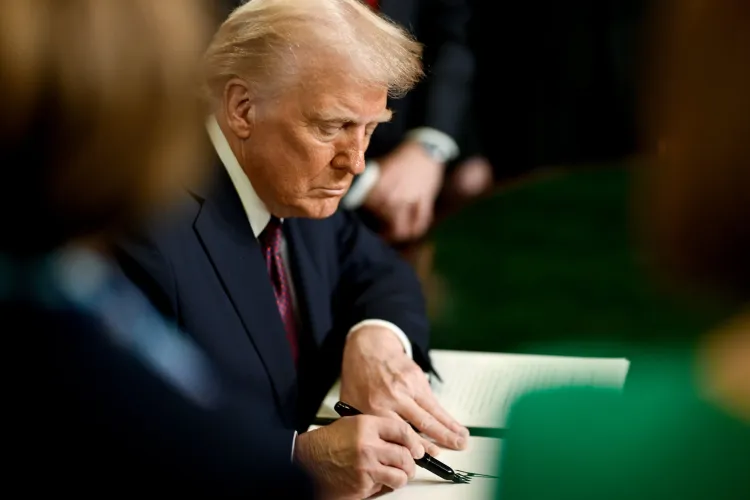Could High Pharmaceutical Tariffs Be Imposed by Month's End?

Synopsis
Key Takeaways
- Phased Tariffs: Initial low tariffs on pharmaceuticals with potential increases over time.
- Domestic Manufacturing: Tariffs aim to encourage pharmaceutical companies to relocate production to the U.S.
- National Security: Tariffs justified under Section 232 to protect national interests.
- Impact on Prices: Potential for significant price increases on medications for consumers.
- Related Tariffs: Similar tariffs are planned for semiconductors and copper.
Washington, July 16 (NationPress) US President Donald Trump has indicated that his administration may begin to impose tariffs on pharmaceutical imports by the end of this month. He mentioned that the timeline for semiconductor duties would be 'similar' to that for pharmaceuticals.
Trump's comments suggest a phased approach to implementing these tariffs, intended to provide companies ample time to establish their production facilities within the United States, according to reports from Yonhap news agency.
"We are likely looking at the end of the month to start with a low tariff, allowing pharmaceutical firms about a year to prepare, before we increase it significantly," he stated during a press briefing after an event in Pittsburgh.
Additionally, Trump noted that the timeline for semiconductor tariffs would also be 'similar' and described imposing levies on chips as 'less complicated', without offering further specifics.
Last week, Commerce Secretary Howard Lutnick stated that the Trump administration would finalize its national security investigations concerning semiconductor and pharmaceutical imports by the end of this month, hinting that tariff announcements might be imminent.
Lutnick referred to inquiries initiated in April under Section 232 of the Trade Expansion Act of 1962, which empowers the president to modify imports into the U.S. if deemed a threat to national security.
During a Cabinet meeting earlier this month, Trump revealed plans to impose a 50 percent tariff on copper shortly, expecting pharmaceutical tariffs to eventually reach as high as 200 percent after allowing manufacturers a year to relocate production to the U.S.
Trump has already launched investigations under Section 232 on pharmaceuticals, claiming that an influx of foreign imports poses a threat to national security.







